Title: Millennium Village, Segou
Dates: 25th-27th November GPS:
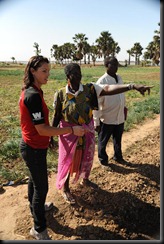 I have been very fortunate to spend two days visiting the Millennium Villages of Tiby – a cluster of 11 villages near Segou. I have been looked after by Dr Bocary Kaya, team leader and science coordinator. I also spent time with Severin Omar, an MBA graduate working for The Millennium Promise organisation. On the first day, Bocary asked me to sit in on the annual planning meeting where the direction of the project was presented to the Millennium Village community leaders and employees to be discussed and implemented.
I have been very fortunate to spend two days visiting the Millennium Villages of Tiby – a cluster of 11 villages near Segou. I have been looked after by Dr Bocary Kaya, team leader and science coordinator. I also spent time with Severin Omar, an MBA graduate working for The Millennium Promise organisation. On the first day, Bocary asked me to sit in on the annual planning meeting where the direction of the project was presented to the Millennium Village community leaders and employees to be discussed and implemented.
The next day Paddy and I travelled out to the villages with Sev this time to deliver onion seeds to the women working a six hectare market garden. After listening and learning for the last two days I am confident that sustainable changes are occurring and that we will not have another “Oualata situation” in Segou. Like in Potou (Senegal) this initiative has only been going for three years, however within that time there have been dramatic positive changes.
The Millennium Villages are supported and funded by a number of international organisations, however in Segou it seems that the program is being largely implemented by The Millennium Promise, an American organisation based in New York and the UN Development Program. It is also important to note that there are many stakeholders, often a number for each project which comes from international, national and local organisations and governments. While they provide funding for specific projects and control the overall direction, I find it most impressive that the whole project is being implemented and run by local Malian people; leaders, scientists, professionals.
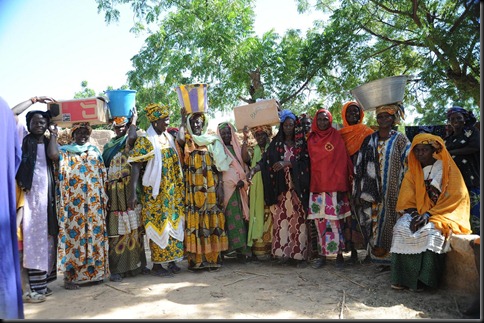
The purpose of the Millennium Village program across Africa is to implement strategies in villages in selected vulnerable zones to ensure the Millennium Development Goals are achieved by 2015. Dr Kaya explained that while this is also the plan in Segou, they are looking at the development of the region as a whole, using advancements in science and business development to make changes sustainable. Dr Kaya has studied for his masters’ degree in Bedford, UK and earned his PhD in the US. While he could have had a successful life living and working in the US or UK, he has realised and is motivated to make more of a difference in his homeland, Mali where his education, skills and experience are so much in demand.
The meeting took place in Dioro, the largest village (approximately 20,000 people), on the banks of the Niger River, 60km north of Segou. Over about four hours the development strategy for the next year was presented by different specialists, led and facilitated by Dr Kaya. The meeting was in French, but I could get the gist of it all, made notes and was able to clarify the main details with Bocary afterwards. Infrastructure was first. Details were outlined for the improvement of roads, irrigation banks, transport, street lighting and importantly communications. In the next year there will be improvements in mobile phone reception and internet connections; communications being key to sustainable development. Food security is a big issue here with unreliable rainfall and climatic conditions not too dissimilar to what we experience in much of Australia. The river is the lifeline here for just about everything; food production (irrigation, fishing), transport, forestry. Presented were detailed plans for use of fertilisers (urea, di-ammonia phosphate) for staple crops such as millet, sorghum, rice. An artificial insemination program is being introduced to improve the standard of the herds for milk and meat production. New specifically designed milking machines will also be introduced which can process 1000 litres a day, pasteurise, pack into one litre bags, and control the temperature for storage.
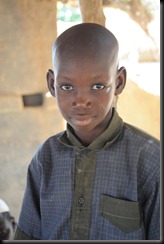 The changes in the education system have been startling. Levels of literacy have increased dramatically in the region. Three years ago the average rate of literacy was around 46%, as low as 33% in some pockets. With a marked improvement in access to primary education (MDG 2 being universal primary education for all), an improved teacher to student ratio and an improved program of teacher support, literacy levels have increased to around 80%, 85% in some cases. There have traditionally been three different forms of education; government backed basic primary education (core subjects – reading, writing, arithmetic, etc.), Medersas teaching Islamic subjects and Koranic learning (rote learning of the Qur’an). Now there is a more integrated approach using these various forms of learning.
The changes in the education system have been startling. Levels of literacy have increased dramatically in the region. Three years ago the average rate of literacy was around 46%, as low as 33% in some pockets. With a marked improvement in access to primary education (MDG 2 being universal primary education for all), an improved teacher to student ratio and an improved program of teacher support, literacy levels have increased to around 80%, 85% in some cases. There have traditionally been three different forms of education; government backed basic primary education (core subjects – reading, writing, arithmetic, etc.), Medersas teaching Islamic subjects and Koranic learning (rote learning of the Qur’an). Now there is a more integrated approach using these various forms of learning.
I learned that much is being done to improve the standard of health care. Malaria has been a serious issue but now people have free access to medication. They are also able to reduce the morbidity rates for HIV/AIDS (2% in Mali), TB and childbirth. There is an education program to change the cultural practice of FGM (female genital mutilation) which is widely still practiced in many African countries. Much is being done for reproductive health care; baby kits to assist home births, medical attention for fistulas.
The last main presentation I heard was about community governance and the empowerment of women/women’s issues. My notes are by no means complete, but I learned a fair amount in one day listening to presentations in French!
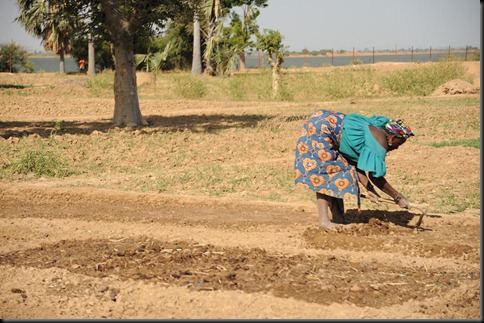
Over the first three years of this Millennium Village initiative attention has been paid to all the major development topics. Now these are taking shape they are moving into the next level of development; improving science and business. I learned much from Sev the next day when we visited another smaller village to distribute onion seeds to the 243 women who work the vegetable garden. A number of different NGO’s and organisations have had a go at aiding development of the 6 hectares over the last 30 years, but all have ended up a bit like in Oualata – unsustainable. The Millennium Promise received a $US20,000 grant to change the situation, make a sustainable model which can be replicated to at least eight other viable village gardens in the area.
Sev has spent the last eight months developing the project along with his own community relations. This was the day that he finally got to distribute the seeds. Why onions you might ask? They are a vegetable which has a long storage life and as the seasonal market fluctuates the villagers can learn to store some of the produce to be sold later in the season when market prices are much higher, therefore making a reasonable profit. During the course of the year, when stocks are low, villagers are normally forced to sell off some of their staple crops (rice, millet, sorghum) to make ends meet so that by about August they are running very short on food and go hungry. By growing the onions and making more of a profit, they will not be forced to sell their staple produce and therefore avoid hunger. The initial investment involved fixing the fence and irrigation system and providing the right variety of seeds. It is important to note that the seeds are not a hand out. Once the crop is produced, the women are expected to pay back the costs with the profit. Education is given in how to maintain the economic viability – keeping the books, trading – even how to “fix the pump”. In fact, while all these initiatives are subsidised, farmers and villagers are all expected to pay it back, or at least pay for a percentage of what they receive. (everything from the milking machines to the artificial insemination program).
Believe it or not, this is just a quick overview of what I found at Tiby. These projects are such a positive contrast to what I found at Oualata, the key I think being that they are being taught the practical and business skills necessary to ensure these advancements are sustained long after the assistance has ended.
The purpose of the next phase of the expedition is to follow the course of the Niger River from Segou to Timbuktu; the river being a lifeline for the people who live beside it, for culture and development.

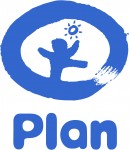

{ 8 comments… read them below or add one }
Hey Kate,
We’re having Christmas drinks soon. We’ll be thinking of you and missing you.
Take care,
Dina
Kate,
Your writing is so good and a most intriguing report,I ate fried onion last night which is unusual as my appetite has been lousy all year but I am cooking again!
I am about to send a consignment to Paddy so let me know if you would like something.
Hugs To you all Mike’
Hi Kate,
Your journey continues to be remarkable. I sent your feed on to Jenny’s sister Helen who was #2 in the Global Fund (TB, Aids and Malaria) and now holds the same role for GAVI. (Global Immunisation). Helen, who lives in Geneva, spends a lot of time working with African governments so is very interested in your journey. She said she couldn’t help sending the following comment re HIV as she is constantly fighting the misdirected cures of African governments.
Dear Gary
Thanks for sending this on – she sounds like a remarkable person and I’ll watch her progress with interest. I do have make one comment though on HIV in Senegal. She is absolutely right that they have one of the lowest infection rates in Africa (about 2%) but this has nothing to do with selenium in their diet and everything to do with political engagement and commitment early and major public education and prevention programs around safe sex, prostitution and drug use.
Helen will be keeping an eye on your journey.
All the best,
Gary and Jenny Lee
Thank you Kate. The only correction I have to make is that onions are not easy to keep until the pick market prices because they do not have long storage life. So special well-aerated warehouses are required and they are part of our business plan for this activity. This way, we could double or even tripple the women’s income and we are looking forward to acheiving that. Thank you and have a safe journey. Kaya
Hi Gary and Jenny,
Lovely to hear from you and thanks for the correction – all taken on board. These blogs are written on the run and so I really only have time to report what I hear and learn at the time. I’m always happy to be put right. I’m also glad my blogs are being read by people in the right places!
All the best,
Kate
Kate,
You’re doing a fantastic job! Your diary is insightful and awe inspiring.
I don’t know how you’re doing it! You’re a true inspiration!
From all of us at Range Resources
Hi Kate,
Great to see the progress you are making. The diary is a really interesting read.
Kind regards, Simon Pritchard.
Great to hear from you. I was just thinking about the final challenge through Somalia and that I should drop Issa a line just to keep in touch. I am really looking forward to travelling therough there – not just because it will be the finish – more satisfying the sense of adventure. I’m being looked after by the people at Gryphon here in Ouagadougou, then off to Niamey for Christmas where we are being looked after by NGM. Another blog to write now. Also I have an interview with Radio National tonight – a pre-record.
All the best,
Kate